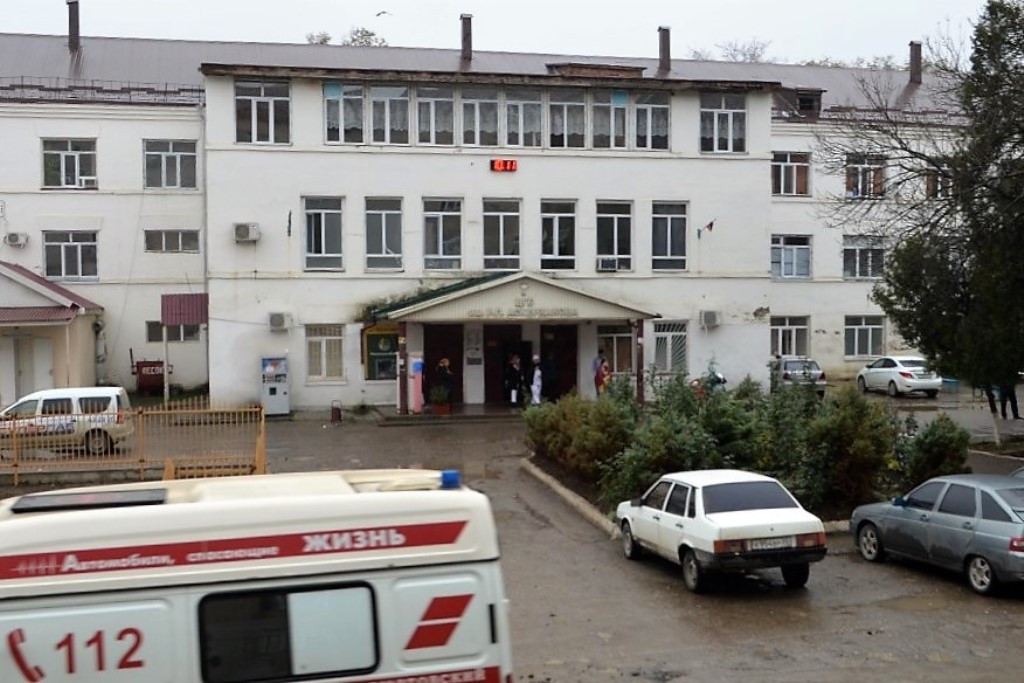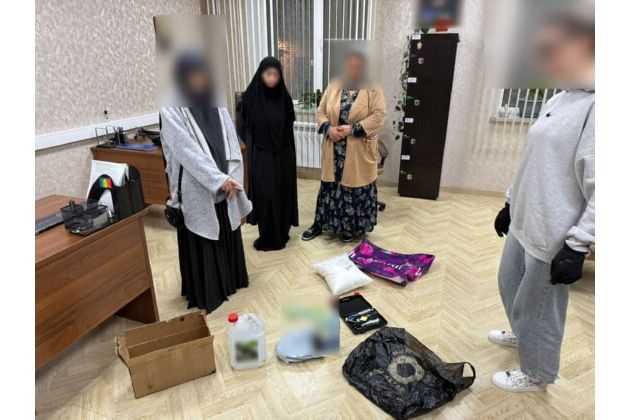

More than 100 people have been hospitalised in Khasavyurt, a city in the Russian republic of Daghestan, with officials blaming the city’s water supply.
Since 17 March, more than 100 people showing signs of acute intestinal infection were admitted to medical institutions.
According to the Daghestani branch of the Federal Service for the Oversight of Consumer Protection and Welfare (Rospotrebnadzor), drinking water was determined to be the preliminary cause of poisoning.
A spokesperson for Rospotrebnadzor told OC Media that ‘the cause of an outbreak of an acute intestinal infection could be just polluted drinking water’.
A spokesperson for Daghestan’s Ministry of Internal Affairs told OC Media that a criminal case was launched on 25 March into a violation of sanitary and epidemiological rules, which led to the mass poisoning. According to him, the investigation is working to establish the circumstances of the incident, and that the investigation was being directed by the Prosecutor’s Office of Daghestan.
According to the spokesperson, the majority of those poisoned were children. They said that 80 people, 72 of whom were children, were admitted to the Khasavyurt Central City Hospital.
The ministry said that the first victims began to seek medical help on 17 March but that no severe cases had been identified among those hospitalised.
The media first became aware of the outbreak on 23 March. That day, Russian news agency Interfax cited unsourced ‘preliminary information’ suggesting that heavy rain had caused the River Aktash, from which drinking water comes to Khasavyurt, ‘to overflow and wash away cattle burial grounds that were created in an improper place near the village Leninaul’ in the neighbouring Kazbekovsky District.
According to Interfax, the story was being investigated by the authorities.
The local authorities in Khasavyurt and Kazbekovsky District both told OC Media the claims were not true.
Authorities deny water contamination
Sultan Abduralimov, the head of the administration of Khasavyurt, told OC Media that the cases of acute intestinal infection did not amount to an ‘outbreak’ and that data from the Ministry of Health counted the total number of people diagnosed since early March.
According to Abduralimov, the cause of the infection was not yet known and that there were a number of factors other than polluted water that could be causing the infections. They added that an examination of the water should be carried out to establish the reasons.
Nevertheless, residents of Khasavyurt told OC Media that the city had organised supplies of drinking water to residents, while doctors and specialists from Rospotrebnadzor advised residents to use only boiled water. They added that periodically, sludge flows from the taps rather than water.
A spokesperson for the Kazbekovsky District administration told OC Media that there were no cattle cemeteries in close proximity to the River Aktash bed.
They recognised that the cattle cemetery mentioned in the Interfax publication did exist near the village of Leninaul, but said that since 2017 it has been completely boarded up.
According to the spokesperson, in recent years, cattle burial was carried out by residents of Leninaul on a contractual basis at the cattle cemetery in the village of Almak, which was operated legally.
The spokesperson claimed that the former cattle cemetery was more than 850 metres from the River Aktash, and that there was no sewage flow in the direction of the river bed. They added that there had been little rainfall in recent weeks, and so the river could not have overflown.
Water without treatment
Two months ago, a similar outbreak of acute intestinal infection occurred in Leninaul. From 2 January to 14 January, 77 cases were recorded. The cause was listed as polluted drinking water.
The spokesperson from Rospotrebnadzor told OC Media that Leninaul’s water supply was only partially centralised — with most of the drinking water coming from the River Aktash without being treated, as was the case in Khasavyurt.
When the water was tested in January, the samples examined did not meet the hygienic standards for bacteriological indicators.
The spokesperson also noted that the village administration had previously been issued fines for violating the Federal Law on Water Supply and Wastewater.
They said the Investigative Committee’s Khasavyurt department and the Prosecutor’s Office of Kazbekovskiy District were notified that a criminal case had been launched into the cases of acute intestinal infections in January.
A spokesperson for the Investigative Committee of Daghestan told OC Media that in connection with the January case in Leninaul, a criminal case was opened and transferred to the Kazbekovsky District police. Daghestan’s Ministry of Internal Affairs said the investigation had not been completed and that the perpetrators had not yet been identified.
In October 2016, a criminal case was opened after the mass-poisoning of drinking water in the Daghestani capital Makhachkala, but no one was convicted.
Magomed Murtazaliyev, the director of the city’s water supplier, Makhachkalavodokanal, was detained as part of the investigation but the charges were dropped after six months.
In January, the Daghestani Prosecutor’s Office announced they would sue Makhachkalavodokanal, as residents of Makhachkala and its suburbs continued to receive drinking water that did not meet sanitary and hygienic requirements.









